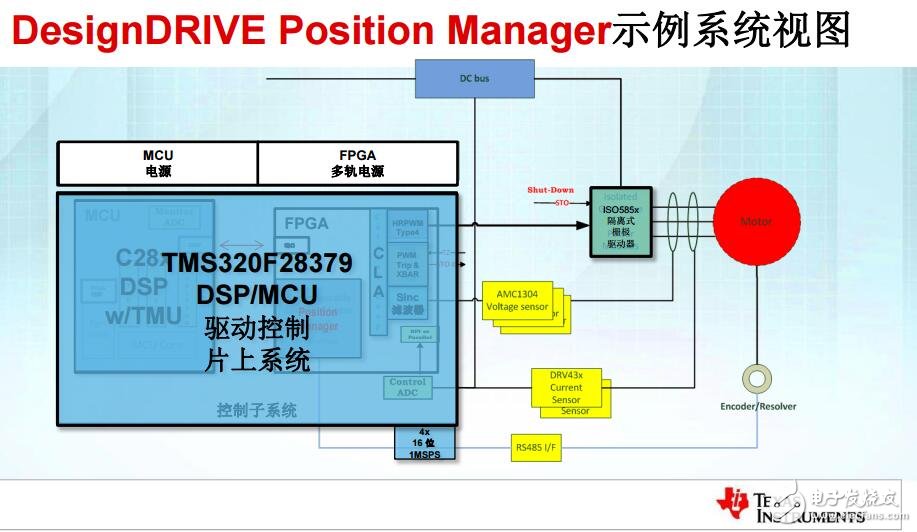In recent years, the rapid growth of consumer electronics, especially mobile devices, has led to a number of semiconductor companies such as Qualcomm, ARM, and MediaTek to become hot spots for developers and investors, and related news about them is also common in newspapers. But in the past three decades, a semiconductor company has never missed the top ten semiconductor manufacturers list in the world, that is Texas Instruments.
According to market research firm IC Insights, Texas Instruments ranked seventh in the global semiconductor rankings in 2015, which was the same as last year's ranking, but overall revenue increased slightly from the previous year. Wu Jianhong, director of business development at Texas Instruments in China, revealed at a recent media conference: "Texas Instruments' total revenue in 2014 was $13 billion, and 80% of it came from the analog and embedded management market, among which 80%. The remaining 20% ​​comes from mobile phones, DLP and computer products."

Wu Jianhong, Director of Business Development, Texas Instruments China
As a big analog manufacturer, Texas Instruments has turned its attention to high-margin areas such as industrial and automotive electronics in the early years. The revenue structure of Texas Instruments also reflects the accuracy of its strategy. According to Director Wu, “31% of Texas Instruments’ revenue in 2014 came from the industrial application market.†With the promotion of Industry 4.0, the industrial market will also usher in a new round of growth. In response to market demand, Texas Instruments has also created several new products for industrial applications, further establishing its position in the industrial and embedded fields.
Industrial Control SoC for Position Sensors
We know that the “Industry 4.0†that is currently being promoted is a brand new industrial revolution, which can greatly improve production efficiency and reduce production costs by means of sensors and networks. But these deeply electronic devices require higher reliability and higher precision. Texas Instruments has recently introduced an industrial drive control SoC with digital and analog position sensors to solve the above problems. The new TMS320F28379D and TMS320F28379S microcontrollers are an extension of the Texas Instruments C2000 Delfino MCU portfolio and the industry's first to implement related features.
According to Director Wu, this product can be easily interfaced with position sensors by using DesignDrive PosiTIon Manager technology. Then, by completing the decoding task on the chip and reducing the communication delay, the loop performance is quickly controlled to further improve the overall performance of the system.

Director Wu introduced the original intention of Texas Instruments to launch this product at the media conference:
“The application of position sensor industrial servo and AC inverter drive is mainly to control the position and control the speed. In the past, these functions have to be realized. In addition to the sensor, it also needs to cooperate with many peripheral periods. Many manufacturers need encoders, ASICs and even The FPGA is used with the sensor, and when it comes to the encoder, because it involves a variety of different standards, in many cases, a separate hardware chip and encoder connection are required. This increases the difficulty of the driver development. Texas Instruments can use a hardware to connect different encoders."
"Because of the reduced board-to-board requirements of FPGA- and ASIC-based solutions, the new product also reduces system cost," added Director Wu.
As mentioned earlier, this is a product with DesignDrive PosiTIon Manager technology, a single hardware and software platform that enables engineers to easily develop and evaluate solutions for multiple industrial drive and server topologies and take advantage of them. Real-time Ethernet communication and functional safety topologies are easily developed and expanded to enable more comprehensive and integrated system solutions.
As a new technology in DesignDRIVE, PosiTIon Manager enables industrial drive system designers to directly develop, support and maintain FPGAs or ASICs for connection to sensors, eliminating the need for additional engineering. It is also compatible with digital and analog position sensors, and this compatibility allows a single C2000 Delfino MCU to flexibly support multiple sensor types. These include EnDat 2.2, BiSS-C, Resolver, SIN/COS, and incremental encoders that cover the clockwise/counterclockwise protocol (CW/CCW).
Texas Instruments is currently the only semiconductor supplier to support both digital and analog position sensors for industrial applications.
With its original technology, this product greatly simplifies system development, saves development time, avoids complex stages in the industrial drive development cycle, and colleagues solve the problem of sensor excuses compatibility. The root of all this comes from its excellent combination of hardware and software.
Director Wu introduced that by next year, Texas Instruments will continue to expand compatibility with different encoder standards.
We noticed that there are two series of D and S differences when naming this product. When asked about the question of Director Wu, he said that both products are pin compatible, but the D series and S series are aimed at In different markets, the S-series is only for low-end and mid-range applications, while the D-series is for high-end applications because its performance is at least doubled compared to the S-series, thanks to its two accelerators.
1500W Portable Power Station,100W Portable Power Station,260W Portable Power Station,600W Portable Power Station
Guangzhou Fengjiu New Energy Technology Co.,Ltd , https://www.flashfishbattery.com